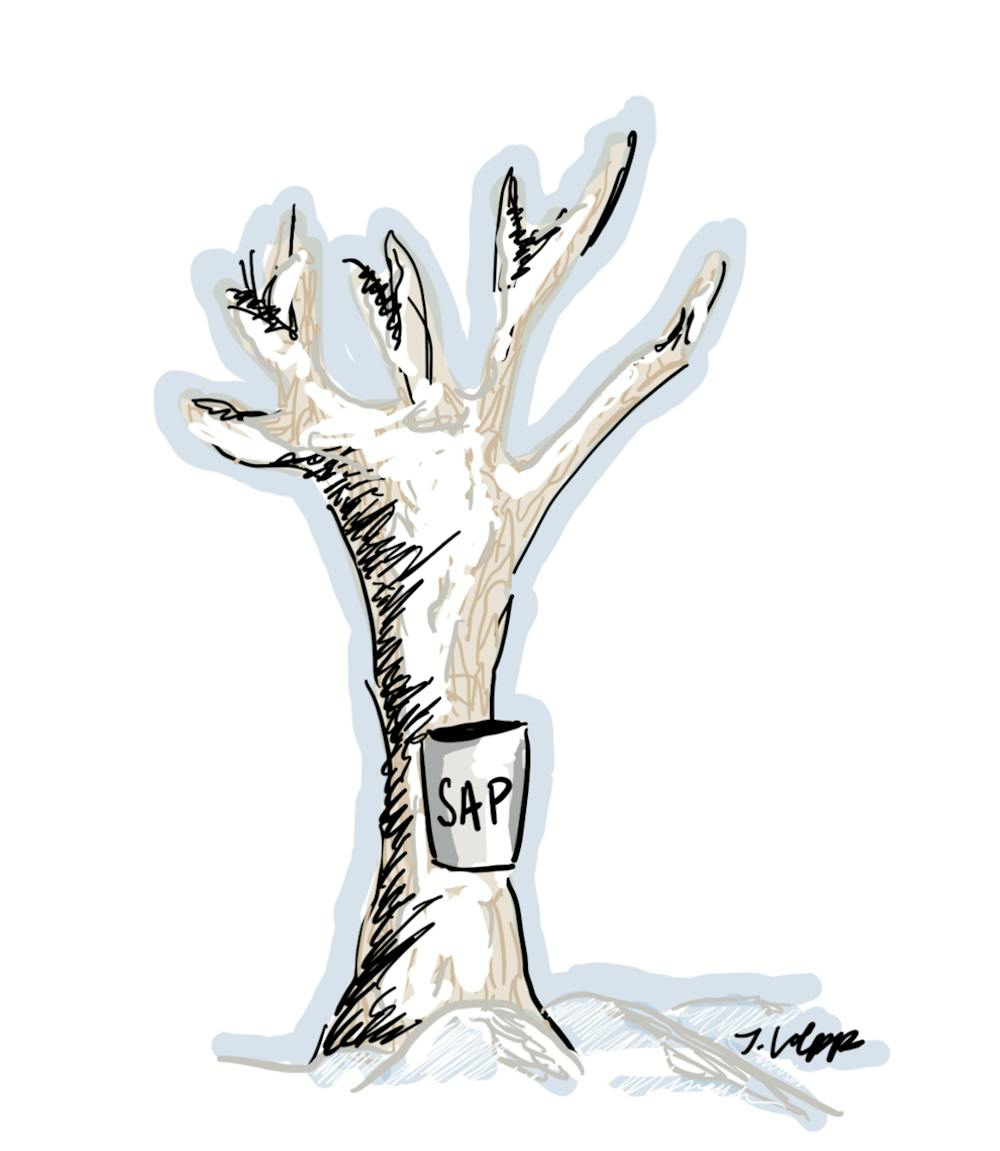The Vermont Maple Sugar Makers’ Association appeared before the Vermont State Legislature requesting direct funding and support on Friday, Jan. 12. The nonprofit organization aims to promote and protect Vermont’s maple sugaring industry, the largest maple industry in the country by a factor of more than two-and-a-half.
Despite being a key industry to Vermont’s identity, the association currently receives no funding from the state, whose agricultural agency does not have a single maple-dedicated expert. While the University of Vermont’s Extension program, which helps Vermonters apply the work being done by UVM”s researchers to in-state industries and lives, does have one expert on staff to support maple producers, many look to the maple association and its two staff members, as well as UVM’s Proctor Maple Research Center for assistance.
State Rep. David Durfee, chair of the Vermont House Committee on Agriculture, Food Resiliency, and Forestry noted the maple association’s concerns about the research center’s future given that two long-term staff members, and its top maple expert, have recently retired.
“I think there is a legitimate concern that what expertise remains is being spread too thin, particularly given the growth in the industry,” Durfee wrote in an email to The Campus.
Requests like these for funding and support from the state are fairly common in the Vermont system, especially as it enters into the budget-negotiation phase of its legislative session this spring, with the fiscal year ending on June 30, 2024.
“While it's not particularly controversial, the Committee will likely hold off on considering this specific request for the time being and may want to take more testimony later if there is an interest in it,” Durfee explained.
The maple agency’s request did not ask for a specific monetary amount, but it did seek “long-term” funding. While a one-time provision could be funded using the American Rescue Plan Act funding, the maple association would seek funding from another source in the longer term.
“I think the use of the term ‘Long-Term’ in this instance may also have been meant to suggest that it might not happen this year, but that it would be useful to begin having a conversation about it now,” Durfee wrote.
Previous seasons in Vermont have seen earlier sugaring in response to climate change, as well as a shift in technologies used by sugarers in order to maintain high production levels.
Tim Parsons, the landscape horticulturist at Middlebury college, noted that while research has shown the negative impact of climate change on tree health, he has not noticed any great change in the health of Middlebury’s maples during his 18-year tenure.
“In the life of a tree, that’s a blink” Parsons said, highlighting the need to focus on larger timescales than his own period of observation.
The maple association’s mission is to maintain a thriving maple industry, as well as a working landscape that can be enjoyed by future generations, according to the association’s website. This mission statement indicates that funding would not need to be immediate in order to help the association fulfill its goals.
Both Durfee and Parsons noted that the maple sugaring industry in Vermont is a complex one, with elements similar to both the specialty-good product and more typical cash crop industries.
The industry is home to both technologically-advanced commercial maple producers as well as the smaller, local, more traditional sugarmakers often associated with maple sugaring.
While the image of Vermont Maple Syrup remains one of pails hung sparsely in forests, some commercial producers in the industry now manage their stands much like corn fields.
The Proctor Maple Research Center has experimented with a technique in which maple trees are planted in rows much like other cash crops, according to Parsons. Each spring, their tops are cut off, sap is sucked out with vacuum-like contraptions and the trees are allowed to continue to grow for the rest of the year before the process is repeated the following season.
While more research likely needs to be done on more invasive forms of sugaring, Parsons noted that traditional sugaring on a healthy tree is not a major stressor and does not significantly weaken the tree.
Although Vermont’s sugaring industry is usually thought of in a bucolic way, it is a major industry with both wholesale and retail components.
“Places are trying to drive profit more, and the best way to get more profits is through retail,” Parsons said.
In its dual-style of both wholesale and retail sales, the maple sugar industry may be compared to the wine industry, with some consumers claiming that, like with wine, they can taste the impacts of specific land and climate characteristics in their syrup.
The Vermont maple association is like other trade organizations in that it tries to leverage state and private support to further the goals of its member entities. Although that requires funding for research into maple health and harvesting techniques, it also requires maintaining maple products as quintessential Vermont products.
Durfee noted that sugaring’s cultural status will likely help the association in its quest for funding.
Parsons explained that Vermont’s maples are used in many processes beyond maple sugaring, including in sourcing hardwoods for goods like furniture and wood chips, such as those used in the college’s biomass plant.
“They aren’t just researching climate change — also insects and diseases. I mean we will probably always be able to make maple syrup, at least for the next 50 years,” Parsons said.
Whether or not the state decides to help fund the association, Vermont's maple sugarers will continue to sugar and seek information to help them thrive in a changing world.
Ben Wagner (he/him) is a Local Editor.
Wagner has previously served as an SGA Writer and Staff Writer. He is an IGS-Global Environmental Change major, and is minoring in Religion. When not up to other shenanigans, Ben loves playing outside and riding his bike.




